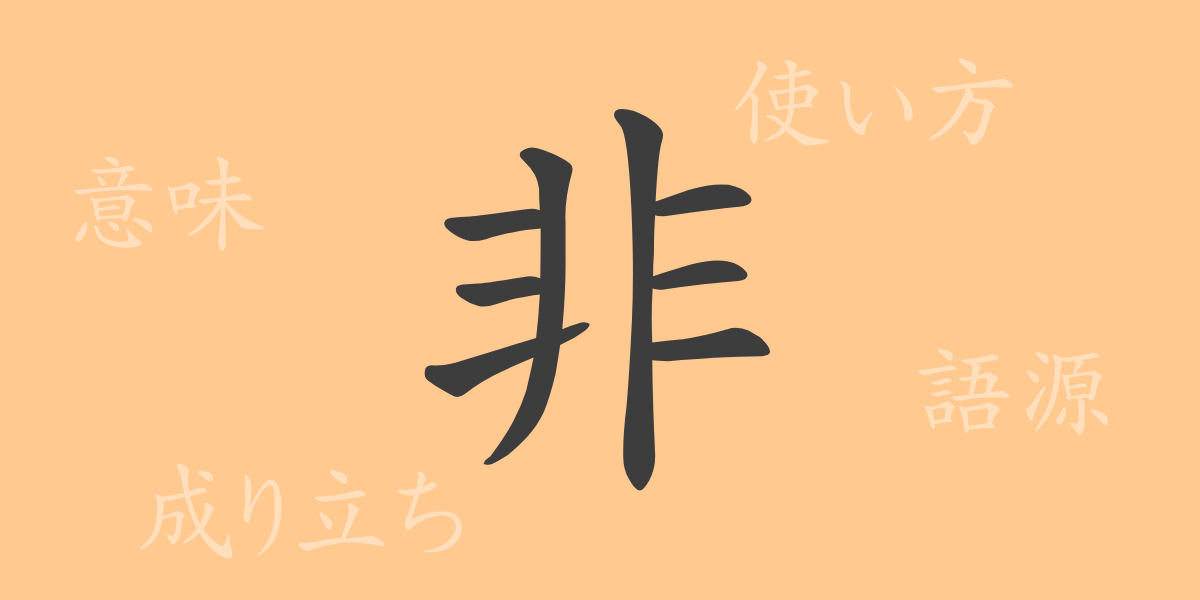Words are the threads that weave culture and history, and even a single kanji character can hold profound meaning. The commonly used Japanese kanji “非” (hi) is a simple yet powerful character that signifies negation or error. In this article, we delve into the world of “非” (hi), exploring its etymology, modern usage, and memorable idioms and proverbs. Through the depth of a single kanji character, let’s rediscover the beauty of the Japanese language.
The Origin (Etymology) of 非 (hi)
The kanji “非” (hi) can trace its origins back to ancient Chinese oracle bone script. Originally, it depicted feathers falling upside down, representing an unnatural state, or in other words, “incorrect” or “not so.” Over time, it evolved to be used as a prefix for negation and words indicating error.
The Meaning and Usage of 非 (hi)
The kanji “非” (hi) is used to express negation, criticism, or error. It carries various nuances depending on the context, often emphasizing a negative meaning. For example, “非難” (hinan) means criticism or blame, and “非常” (hijou) refers to an unusual or emergency state. Additionally, it functions as a prefix to indicate the opposite or negation when attached to adjectives or verbs.
Reading, Stroke Count, and Radical of 非 (hi)
The reading, stroke count, and radical of the kanji “非” (hi) are as follows:
- Reading: The on’yomi (音読み) is “ヒ” (hi), and there is no specific kun’yomi (訓読み).
- Stroke Count: It has a total of 8 strokes.
- Radical: The radical is “非” (hi) itself.
Idioms, Expressions, and Proverbs Using 非 (hi) and Their Meanings
Here are some idioms, expressions, and proverbs that include “非” (hi):
- 非難 (ひなん, hinan): Criticizing or blaming someone’s actions or opinions.
- 非常 (ひじょう, hijou): Refers to an unusual or emergency state.
- 非行 (ひこう, hikou): Acts that go against social norms or laws.
- 非力 (ひりき, hiriki): Weakness, or a humble expression of one’s lack of strength.
- 非道 (ひどう, hidou): Actions that go against reason; inhumane acts.
- 非の打ち所がない (ひのうちどころがない, hi no uchidokoro ga nai): A state of perfection, where there is no point to criticize.
Conclusion about 非 (hi)
The kanji “非” (hi) is a character with a multitude of meanings and usages, far beyond what its form might suggest. Despite its negative connotations, it is an indispensable part of the Japanese language, used in various idioms and proverbs. Understanding the meaning imbued in each character that composes words leads to a deeper comprehension of the language and is the first step towards richer expression. By exploring “非” (hi), we hope you can appreciate the infinite possibilities of kanji and the profound depth of the Japanese language.

























